Not everyone has a green thumb or a large enough yard for a garden. Sure, you can plant some things in containers, but it's not really enough to preserve enough fruit and vegetables for a year. Some people simply do not have the time to garden. However, you can still stock up on fruits and vegetables by preserving them. If you plan ahead and put it in your budget, you'll be able to afford to purchase enough fruit and vegetables to last a year.
Locating Fresh Produce
Many areas have farm stands where you can buy fresh produce. If your area does not, check with local farmers to see if you can buy some of their crops when they are ripe. Another option is to look for a "pick your own" farm. Because you are doing the work, you often get fresh fruit and vegetables for a lot less than you'd pay in the store. The produce is fresher since it hasn't been sitting in a warehouse for days or weeks prior to being delivered to a grocery store.
Finally, check local flea markets. Farmers often bring their fruits and vegetables to the flea markets to sell, as they can reach a larger crowd and sell the produce while it's still fresh.
Preserving Produce
How you preserve the produce you grow or buy depends on your preferences and the type of produce you have. You can freeze or can most produce. However, produce such as lettuce and cucumbers do not freeze or can well – or at all.
You can freeze or can most fruit or make it into jams and jellies. Root vegetables such as carrots and potatoes do better when canned, though you can freeze partially cooked carrots. If you want to freeze potatoes, you need to cook them first.
Tomatoes, green peas and green beans freeze and can well. Summer squash and zucchini tend to lose their flavors and become soggy when you freeze them. They can also lose their flavor when canning them. However, you can freeze butternut, acorn, pumpkin and other types of winter squash.
You can turn cucumbers into relish and pickles – both work well for canning but not freezing. Apples, peaches, pears and berries freeze and can well. You can can citrus fruit, but not freeze it. For the best canning recipes, pick up a copy of the Ball Book of Canning and Preserving. In addition to the instructions for canning and preserving, this book has recipes for pickles, ketchup and much more.
Freeze Drying
You can purchase a freeze dryer to freeze dry most foods, but they are extremely expensive. People freeze dry soups, mashed potatoes and even whole meals. However, freeze-dried food can last up to 25 years, as a freeze dryer removes up to 99 percent of the moisture from foods.
Freeze-dried meals are always pre-cooked – you just need to add water. The food tastes close to the original. It also maintains most of its nutrients – about 97 percent.
Food Dehydrators
A more affordable method to preserve food is to use a food dehydrator. Most home dehydrators can remove up to 80 percent of the moisture in food. Dehydrated food can last up to 15 years in many cases.
With dehydrated food, you need to cook it before you can eat it instead of just soaking it. Boiling it for 20 or more minutes can rehydrate it enough to taste nearly fresh. The one downside of dehydrated food is that it only maintains about 60 to 75 percent of the food's nutrients.
How Much Produce Should I Preserve?
Canned fruit and vegetables last longer than frozen fruit and vegetables. However, if you prefer frozen, which has more nutrients since you're not cooking them out, double wrap the produce to make it last longer in the freezer. Using quality freezer bags helps protect against freezer burn.
Freeze fruit and vegetables in meal serving sizes. For example, if you have four people in your family, freeze enough for the four of you in smaller freezer bags. Place those bags in larger one-gallon or two-gallon freezer bags. Be sure to label the outside of the larger bags with the contents and date you put the food in the freezer.
Another option is to vacuum seal your produce and then put it in larger freezer bags. Something that would typically last three to four months in the freezer can last up to eight months or longer if the food is wrapped properly.
Canned vegetables can last for two or more years as long as the seal is good and doesn't break. When you make jams and jellies, can them in a pressure canner – they'll last much longer than if you put wax on top of them or if you use the inversion method to seal the jars.
You'll find that you will save a ton of money if you put up produce during the summer and fall so that you won't have to buy it during the off-season. Put the money you save into your high-yield savings account for a rainy day, emergency or retirement.






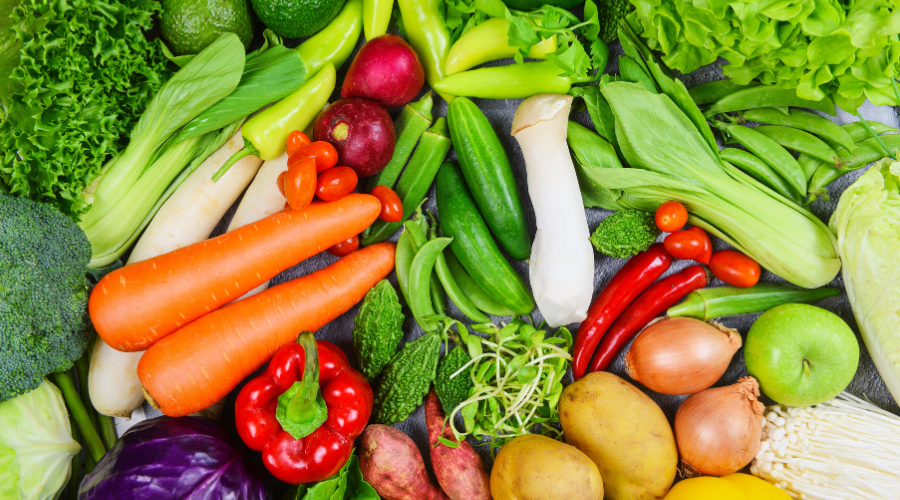
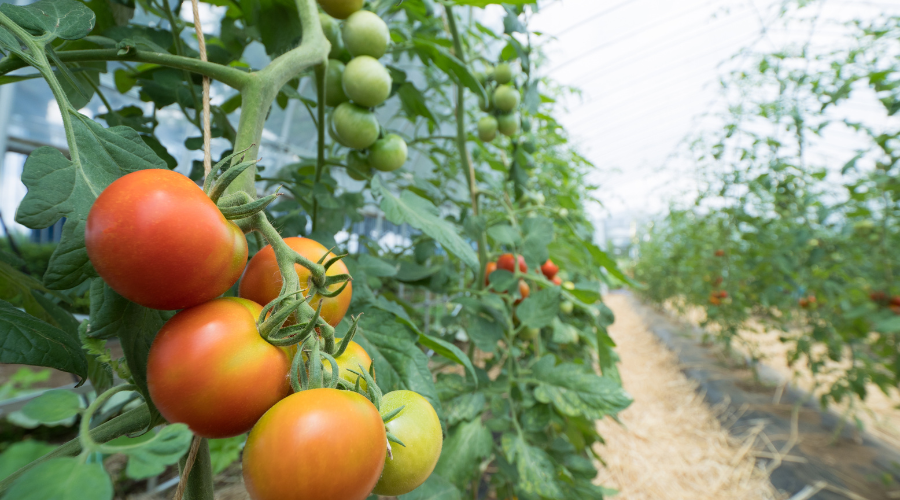
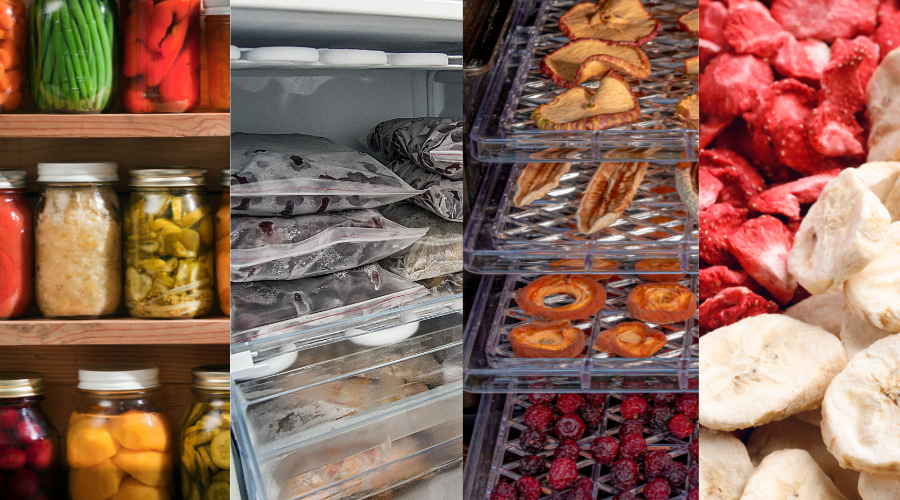
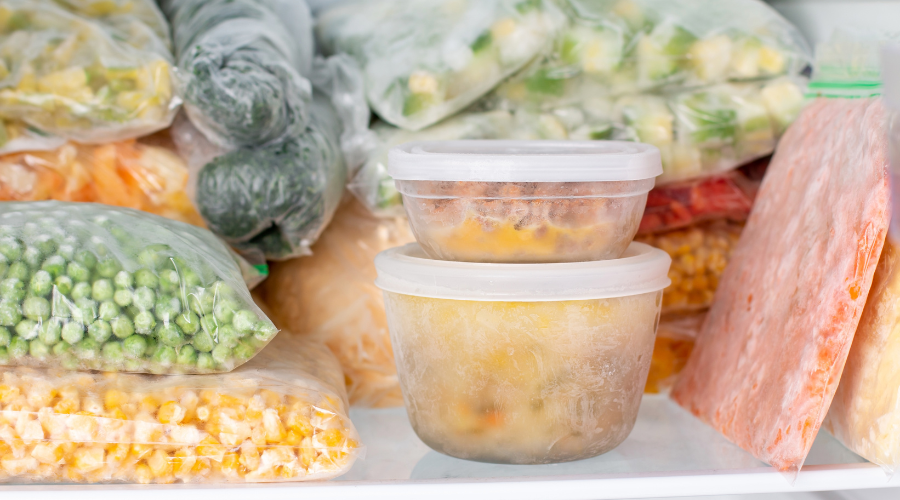
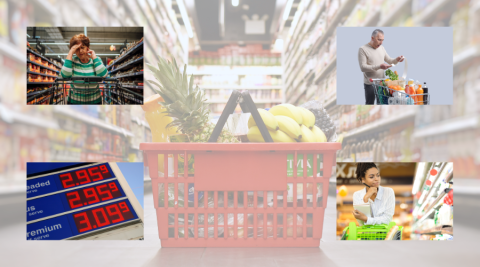

Comments